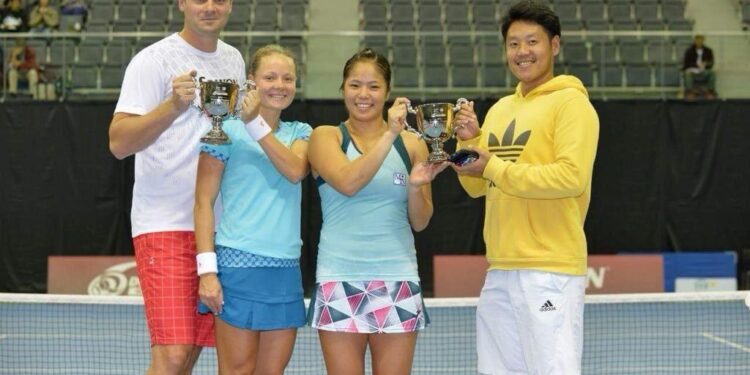Within tennis, there is tension. That journey from the first serve to the final match point is a roller-coaster of emotions. It takes more than just quick feet and coordination to win. Players need precision, strategy, and fortitude. The entire emotional journey can be summed up in three simple words: “Game, set, match.”
Split-second decisions are the make-or-break that separates the victor from those who fall short. Every match point is a microcosm of the sport’s drama, artistry, and a player’s pursuit of being the GOAT.
Anatomy of a Match Point
Understanding the anatomy of a match point requires an examination of its significance in a tennis match. The build-up to a match point is much like tennis. There is an ebb and flow to a game, with players scurrying across the court, returning serves, and pressing for the advantage. Scoring in tennis is much like that ebb and flow. Win a game, lose a game, win another, and so on.
The game point, although important, builds up to winning the set. In the context of an entire match, that match point is the chance to win the entire competition with the next point. But saving that match point means the ad out can keep playing and keep striving for the win.
Mounting Pressure
There is heightened pressure when one point can determine the outcome of the entire match. Losing one game point that can be recovered isn’t always the end. The psychological impact of that match point will test a player’s resolve.
The mind games that players employ can be a source of confusion and excitement and increase the challenge. Mind games also add to the pressure. From playing “tired” to smack talk intimidation, players might use mind games to completely throw off their opponent. And these games work. It’s up to the players to be ready with a comeback – a retort is a must since you can’t cry or whine. Stay focused and be ready to win that match point, or make the lightning-fast decisions to save that match point and continue fighting.
Be Tactical
How you approach the match point matters. Focus on precision and placement instead of raw power. Tennis GOATs aren’t always the largest and strongest people. Look for an opponent’s weakness and find a way to exploit that. Like the mind games above, exploiting a weakness works.
Playing aggressively is a smart, strategic approach to winning tennis matches. Not mindless aggression that involves giving away cheap points, but strategic aggression, being willing to put pressure on an opponent with selective aggression. Work smarter, not harder, and this applies here, too.
Be court aware. Understand your proximity to the baseline, net, and sidelines, and track your opponent. This allows players to anticipate shots and exploit weaknesses. Court awareness is important for adaptability.
Calm Under Pressure
Remaining composed during the match point is important. If a player becomes too emotional or frantic, that stress will lose them that point. It can lead to a game loss.
Here are some tips for keeping it together. First, take a breath. Simple? Yes, and effective. Breathe between points. Focus on the next breath, the next point. Don’t focus on the score, just the point. Second, try to stay positive. This one can be hard. Match point and ad out? That feels hopeless, but keeping your attitude positive helps you focus on your game, focusing on now and that next point. Third, remember your fundamentals. You were trained for this; just keep the technical fundamentals going. And last, commit! Commit to your shots. Don’t second guess yourself mid-shot. That weakens the power of the shot.
The mental mindset needs practice, just as your technical game did. Each point, each shot, each game, practice remaining calm.
Takeaway
The match point is the make-or-break point. Use some of these strategies in your next game. Try a few mind games, press the net when advantageous, remain calm, and keep breathing.
Every match point will play out differently. Be adaptable and ready to make your move in a smart way. Remember, you trained for this.
About the Author
Maxim Filippov is the high-performance junior tennis manager at The Atlantic Club. Maxim studied at the Kazakh Academy of Sports and Tourism. His sports accomplishments allowed him to grow into an internationally recognized tennis player and entrusted coach at one of the US leading tennis clubs for the last 9 years. Maxim also achieved MOT ( master of tennis ) Junior development by PTR, and he currently shares his skills and practices within local and international communities.
His students are multiple prize winners of international competitions, including the US Open and WTA. He has been awarded a coach of the year “Florey Award” by WTCA and raised junior groups to the professional level, with the recognition of a Master category.





















